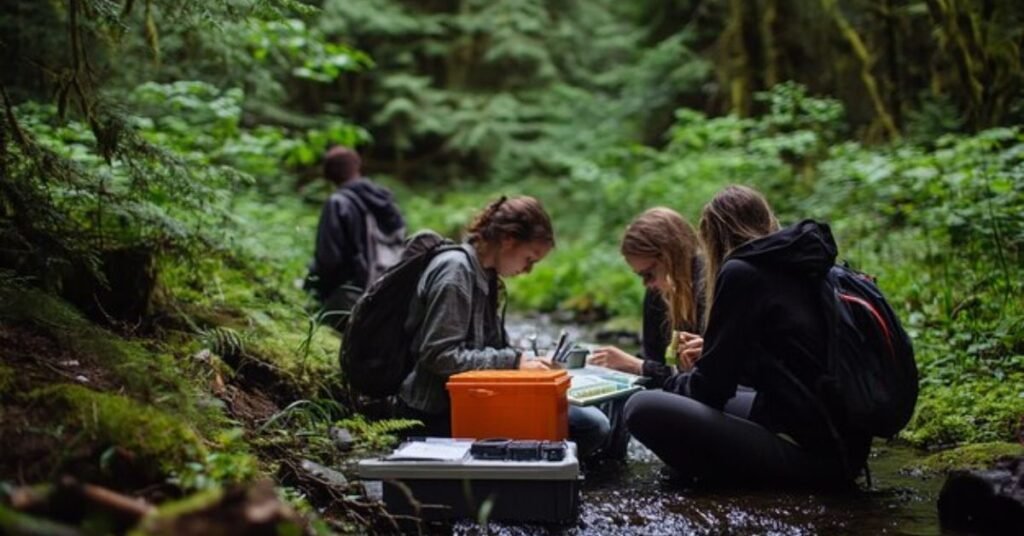King Charles III has long been a passionate advocate for environmental sustainability and combating climate change. Throughout his life, he has emphasized the importance of living in harmony with nature, promoting sustainable practices in various industries. Among these efforts, his commitment to promoting sustainable travel stands out. As tourism continues to be a growing sector globally, its environmental impact is increasingly concerning. Through his sustainable travel initiatives, King Charles aims to reshape the future of tourism, making it more eco-friendly while preserving the natural and cultural heritage of destinations worldwide.
King Charles’ Commitment to Sustainability
Even before becoming king, Charles was known for championing environmental causes. For decades, he advocated for reducing carbon emissions, protecting biodiversity, and fostering sustainable development. His leadership in the field of sustainability began long before these concerns became mainstream. Today, as the monarch, King Charles continues to advance these causes, using his influence to promote more sustainable ways of living. His sustainable travel initiatives reflect his deep commitment to ensuring that future generations inherit a healthy, thriving planet.
The Need for Sustainable Travel
Tourism is one of the largest and fastest-growing industries in the world, but it also has a significant environmental footprint. Travel-related activities, including transportation, accommodation, and tourism infrastructure, contribute to pollution, deforestation, and the degradation of natural habitats. Air travel, in particular, is a major contributor to global carbon emissions. King Charles recognizes the need to address these issues and has made sustainable travel a priority in his environmental agenda. By encouraging more responsible travel practices, he aims to reduce tourism’s negative impact while promoting conservation and eco-friendly alternatives.
Eco-Friendly Transportation Solutions
One of King Charles’ primary focuses is reducing the carbon footprint of transportation, especially in the tourism sector. He has consistently advocated for greener modes of transportation, including trains, electric vehicles, and even cycling as alternatives to carbon-heavy air travel. Rail travel, in particular, is a key element in his sustainable travel initiatives. King Charles has been vocal about the environmental benefits of trains, encouraging travelers to consider this slower, more scenic, and less polluting option for domestic and international trips. Electric vehicles, as well, are integral to his vision for reducing transportation-related emissions.
To support these initiatives, King Charles has partnered with various organizations promoting low-carbon transportation. For example, he has been a key advocate of expanding electric vehicle charging infrastructure, making it easier for travelers to adopt sustainable practices. By promoting eco-friendly transport solutions, he aims to reduce tourism’s overall carbon footprint while making travel more enjoyable and environmentally responsible.
Promoting Local and Sustainable Tourism
In addition to focusing on transportation, King Charles strongly advocates for supporting local tourism. He believes that sustainable travel is not only about reducing carbon emissions but also about preserving local cultures, communities, and ecosystems. His initiatives encourage tourists to explore destinations closer to home, reducing the environmental impact of long-distance travel. This approach fosters a deeper connection between travelers and the places they visit, promoting local economies and sustainable practices.
Through his charitable work, King Charles has supported numerous projects aimed at preserving cultural heritage and protecting fragile ecosystems. His emphasis on promoting local tourism helps sustain rural communities, encouraging travelers to engage with locally owned businesses, farm-to-table dining, and cultural experiences that benefit local economies directly. This not only reduces the carbon footprint associated with travel but also ensures that tourism dollars are reinvested into communities in need of support.
Conservation-Focused Tourism Initiatives
A core element of King Charles’ sustainable travel agenda is conservation. As an avid supporter of conservation efforts worldwide, he has consistently worked to promote tourism that respects and protects the environment. King Charles has long supported eco-tourism initiatives that prioritize the preservation of natural habitats, wildlife, and biodiversity. His belief is that tourism, when managed responsibly, can play a crucial role in protecting the planet’s most vulnerable ecosystems.
Through partnerships with conservation organizations, King Charles has helped promote eco-tourism initiatives that allow travelers to experience nature responsibly. These initiatives often include guidelines for minimizing the impact on natural landscapes, promoting education about environmental stewardship, and supporting conservation efforts through travel-related revenues.
Reducing Plastic Waste in Travel
King Charles has also focused on reducing the waste generated by travel, particularly plastic pollution. Tourism often contributes to the global plastic crisis, as many travelers rely on single-use plastics during their journeys. From water bottles to packaging materials, plastic waste accumulates quickly and often ends up in oceans, harming marine life. Recognizing this problem, King Charles has initiated campaigns aimed at reducing plastic waste in the tourism industry.
One of the key initiatives he supports is encouraging travelers to adopt reusable products, such as water bottles, bags, and utensils. Hotels and tourism operators are also encouraged to minimize plastic use, opting for sustainable alternatives like biodegradable packaging and refillable amenities.
The Role of Sustainable Accommodations
Another significant aspect of King Charles’ sustainable travel initiatives is promoting eco-friendly accommodations. He has actively supported hotels, resorts, and lodges that prioritize sustainability through energy efficiency, water conservation, and waste reduction. Sustainable accommodations reduce their environmental impact by using renewable energy, recycling materials, and sourcing food locally. King Charles encourages the travel industry to adopt sustainable business practices that minimize their carbon footprint and benefit local ecosystems.
Many hotels and resorts that align with King Charles’ vision have earned certifications for their green practices, such as LEED (Leadership in Energy and Environmental Design) or EarthCheck certifications. These sustainable properties set a standard for the industry, showing that luxury and sustainability can go hand in hand. King Charles’ focus on promoting such accommodations helps travelers make more environmentally conscious choices when planning their trips.
Influencing the Global Tourism Industry
King Charles’ initiatives are not limited to the United Kingdom; they have a global impact. As a well-known global figure, he has used his influence to encourage international organizations, governments, and businesses to embrace sustainable travel practices. Through his foundation, The Prince’s Trust, and other charitable organizations, King Charles has been involved in numerous global campaigns promoting sustainability. These efforts aim to reshape how tourism is perceived and practiced around the world, emphasizing environmental responsibility.
Educating Future Generations on Sustainable Travel
King Charles understands that education is key to long-term sustainability. Part of his travel initiatives involves educating the public, particularly younger generations, about the importance of responsible travel. His goal is to create a cultural shift in how people view tourism—moving from a focus on consumption to one centered on conservation and sustainability.
By partnering with educational institutions and environmental organizations, King Charles has supported programs that teach young people about the impact of their travel choices.
Creating a Blueprint for Sustainable Tourism
King Charles’ sustainable travel initiatives offer a blueprint for the future of tourism. His holistic approach, which combines eco-friendly transportation, local tourism support, conservation, waste reduction, and sustainable accommodations, provides a roadmap for other leaders and organizations to follow.
Conclusion
King Charles’ sustainable travel initiatives are reshaping the way we think about tourism, demonstrating that environmental responsibility and travel can coexist. Through his advocacy for eco-friendly transportation, support for local tourism, conservation efforts, and plastic waste reduction, King Charles is leading the charge for a greener future in global tourism.
FAQs
1. What are King Charles’ sustainable travel initiatives?
King Charles promotes eco-friendly travel through sustainable transportation, local tourism support, conservation, and plastic waste reduction.
2. How does King Charles encourage sustainable transportation?
He advocates for low-carbon transportation options like electric vehicles, trains, and cycling to reduce the tourism industry’s carbon footprint.
3. Why is supporting local tourism important?
King Charles supports local tourism to reduce the environmental impact of travel and to preserve cultural and natural heritage.
4. How does King Charles address plastic waste in tourism?
King Charles promotes reusable alternatives and encourages hotels to reduce single-use plastics, preventing pollution in tourist destinations.
5. How can travelers support King Charles’ vision for sustainable tourism?
Travelers can support his vision by choosing eco-friendly accommodations, reducing plastic use, and opting for sustainable transportation options.



